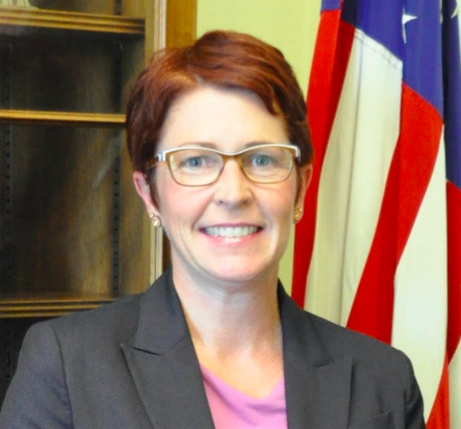The Virtue of Sunsets?
I’m not a fan of sunsets. I don’t mean the glorious sprays of color caused by the setting sun. I’m referring to expiration dates, particularly those attached to intelligence-gathering laws. I’ve long believed that Congress shouldn’t need a countdown clock to perform its oversight of national security programs and that it can amend any law it deems deficient at any time, sunset or no sunset.
Published by The Lawfare Institute
in Cooperation With

I’m not a fan of sunsets. I don’t mean the glorious sprays of color caused by the setting sun. I’m referring to expiration dates, particularly those attached to intelligence-gathering laws. I’ve long believed that Congress shouldn’t need a countdown clock to perform its oversight of national security programs and that it can amend any law it deems deficient at any time, sunset or no sunset. But as Congress embarks on reauthorization of the FISA Amendments Act, set to expire December 31st, I find myself pondering whether sunsets have some value (for a discussion of sunsets in the AUMF context, see the 2014 exchange between John Bellinger and Jack Goldsmith).
Beginning with the 2001 USA PATRIOT Act, Congress has routinely included expiration dates on most national security laws (or portions of them). But its reauthorizations have often closely bumped up to or entirely missed the deadline for extending intelligence laws, creating uncertainty for the intelligence agencies or, worse, causing surveillance programs to go dark.
The 2005 reauthorization of the PATRIOT Act was on track to reach the President’s desk well before the December 31st expiration date. Both the House and Senate passed reauthorization bills in July 2005 and proceeded to conference. The House passed the conference report on December 14, 2005. But unresolved issues arising out of litigation in the Second Circuit relating to National Security Letter non-disclosure procedures resulted in delays of the reauthorization.
Two “clean” extensions pushed the expiration date from December 31, 2005 to March 31, 2006. Ultimately, the conference report and a separate bill containing additional NSL and FISA business records non-disclosure procedures were passed several weeks in advance of the March 31st deadline. Congress made all but three provisions permanent—Section 215 business records, Section 206 roving wiretap authority, and the so-called “lone wolf” definition (added to FISA by the 2004 Intelligence Reform and Terrorism Prevention Act, not the PATRIOT Act).
These three provisions were slated for renewal in 2009. Congress again did not reach consensus before the end of the year. Instead, it enacted a short-term extension as part of the Department of Defense appropriations bill on December 19, 2009, pushing the sunset to February 28, 2010. A one-year clean reauthorization was sent to President Obama on February 25th and signed on the 27th.
One year later, on February 14, 2011, the House sent the Senate a ten-month extension of the three provisions. In the alternative, the Senate returned—and the House passed—a three-month extension to May 27th. On May 26th, with the three provisions set to expire at midnight, the Senate called up a small business bill that had ping-ponged between the chambers and used it as a PATRIOT reauthorization vehicle. It passed the House at 7:56 p.m. and, since President Obama was out of the country, was enacted via autopen—the first enactment of a bill with an artificial signature in U.S. history.
The Protect America Act, the precursor to the FISA Amendments Act (FAA), was enacted in August 2007 for six months. Two days prior to the PAA’s February 1st expiration, Congress postponed the sunset for a mere 15 days to February 16, 2008. Two weeks later, an attempt in the House to pass a three-week extension failed on suspension (requiring a 2/3 majority). A series of short-term and long-term extensions were introduced but not taken up in the Senate. As a result, the intelligence gap addressed by the Protect America Act remained open until the FAA was enacted in July of that year. The 2012 FAA reauthorization passed the House in September but did not clear the Senate until December 28th and was signed by President Obama on the day the law expired.
Most recently, in May 2015, the three temporary PATRIOT provisions expired following ten tumultuous days in the Senate filled with filibusters, failed cloture votes, rejected unanimous consent requests, and a recess. Two days after the sunset, the Senate passed and President Obama signed the USA FREEDOM Act.
Legislating our foreign intelligence laws with short-term extensions and missed deadlines creates unnecessary work and political controversy for Congress. Passing legislation through both chambers of Congress, even a bill that does nothing more than change a date, consumes valuable time and resources. And it places Members of Congress in the often uncomfortable position of taking multiple votes on a politically-charged topic. In 2011, for example, House members cast no fewer than seven votes (including procedural votes) on legislation to carry forward the expiring provisions.
These fits and starts are also disruptive for the IC, which with every down-to-the-wire reauthorization must prepare for the loss of an intelligence-gathering tool or—as was the case in 2008 and 2015—shut down an intelligence-gathering program altogether, a feat that is not achieved by simply flipping a switch.
So what are the merits of sunsets?
First and foremost, sunsets force Congress to legislate. Whether one is fan or foe of the law, the USA FREEDOM Act put to rest the controversy surrounding the NSA bulk metadata program created by the Snowden leaks. Recall that the leaks occurred a full two years prior to USA FREEDOM Act enactment. In the absence of a sunset, the metadata program would likely have been the source of ongoing debate beyond those two years and possibly left intact, forcing members of the House and Senate to continually confront the controversy in their districts and elections and further exacerbating Americans’ distrust of our intelligence agencies.
Sunsets also spur heightened congressional review of and member education on intelligence programs. This is not to suggest that the committees that oversee FISA and the PATRIOT Act do not routinely engage in oversight. But much of this oversight is classified in the form of committee staff or member briefings or IC reports and FISC opinions.
Tomorrow, the House Judiciary Committee is holding a two-part hearing (classified and open) on Section 702 of FISA. For the handful of new members of Congress on the committee, this will likely be their first foray into intelligence-gathering programs. The hearing will also serve as a refresher course for veteran committee members who have not collectively taken a deep dive into the FAA since a February 2016 classified hearing.
Section 702 programs are highly technical and have their own vocabulary. Members will hear terms like “incidental collection,” “reverse targeting,” “minimization,” “upstream,” “query,” and “tasked selector.” They are also shrouded in controversy and misinformation. Committee members must become well-versed in 702 collection to understand its value, sift through criticisms and misconceptions, and assess proposed reforms.
Unfortunately, committee oversight, even public hearings, does not typically serve to effectively inform the larger House and Senate membership. In the past, the committees have offered classified briefings for members, a practice that should continue. But this year, unlike in 2012, there is an abundance of unclassified 702 materials, such as the 2014 PCLOB report and materials posted by the ODNI to IC on the Record. The committees should use this wealth of public information to their advantage to further educate members and staff.
In light of the controversy surrounding U.S. person data and the general stigma that the Snowden leaks attached to 702, it’s likely that FAA reauthorization will involve more than a simple date change. The committees and House and Senate leadership should plan ahead for this and the prospect of a conference or some form of negotiating between the chambers and set a timeline that attempts to avoid last-minute, eleventh hour legislating, or the worst-case scenario—a lapse in 702 authority.
This may not be possible given that even the 2012 clean FAA reauthorization was a nail-biter. But completing a FAA reauthorization in advance of the sunset would avoid a repeat of the 2015 USA FREEDOM Act fiasco and perhaps convince me of the virtue of sunsets.





